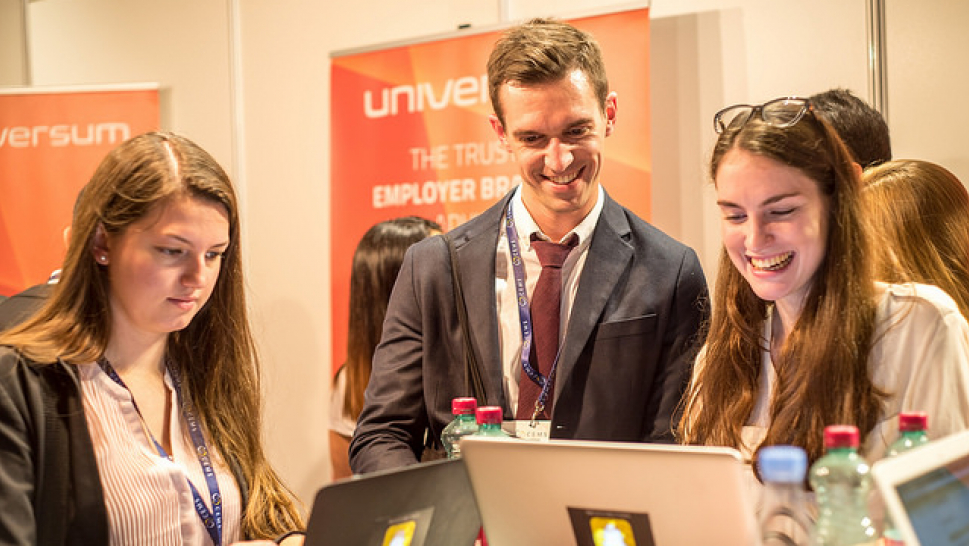The research, carried out by CEMS – the Global Alliance in Business Education - alongside their corporate partner Universum, also found that 87% of respondents consider foreign language skills to be important for employability.
HR managers see the major challenges of working abroad for their employees as 1/understanding a new culture (48%), 2/cultural shock (24%) and 3/language/communication issues (16%). Other issues raised include problems with finding a position when employees return (repatriation), high costs for the company and visa issues.
The research involved detailed interviews with 80 global HR managers, half of whom were based in Europe. Over half were from companies with over 1000 employees.
One in seven (14%) of HR managers from larger organisations said that over 30% of managers within their company work internationally (out of their home country), though this figure was lower in smaller companies (41% of all respondents stated that less that 5% operate internationally).
The main advantages of hiring globally were seen differently depending on the region:
74% European HR managers stated that hiring from different countries leads to a diverse working atmosphere
Non-European HR managers (US and Asia) focused more on the need to close recruiting gaps that are hard to fill and meet graduate expectations of working with international colleagues.
Roland Siegers, Executive Director of CEMS, said: “It is clear from this research that global mobility is very much on the agenda of HR professionals, and particularly in larger organisations, a substantial proportion of managers operate internationally. Despite this, many still say they have some trouble recruiting the right global profiles. Respondents also identify the many challenges involved with placing employees internationally, including cultural awareness and language barriers.”
“In a time of global challenges, the world requires internationally educated, inspired leaders and employees, who can build bridges across the divides that separate us and who are globally-minded, while sensitive enough to know when it is appropriate to act locally.”
“Because of this, and in light of these findings, companies need to invest in employees and managers to make sure they are equipped with the skills to operate globally. CEMS can offer a solution to this - we emphasise both ‘the big picture’ in our teaching, looking at global strategies of multi-national companies, as well as the ‘micro’ aspects of what it means to be a leader and employee, in an intercultural environment, through both theory and practice.”
Upon graduation, students’ careers take a truly international path in a great variety of sectors and in many cases within multinational companies:
- About the
- 95% are employed or continuing their studies
- 50% are living outside of their home country
- 80% work for multinational companies
CEMS Global Alliance
CEMS is a global alliance of academic and corporate institutions dedicated to educating and preparing future generations of global business leaders to enter into a multilingual, multicultural and interconnected business world through the CEMS Master’s in International Management. CEMS was founded in 1988 and the network includes 30 schools across 5 continents, 72 Corporate Partners (multinational companies) and 4 Social Partners (NGOs). In the class of 2016-2017 there are 1,264 current MIM students of 70 nationalities enrolled and 10, 752 alumni of 85 nationalities, working in 75 countries.




